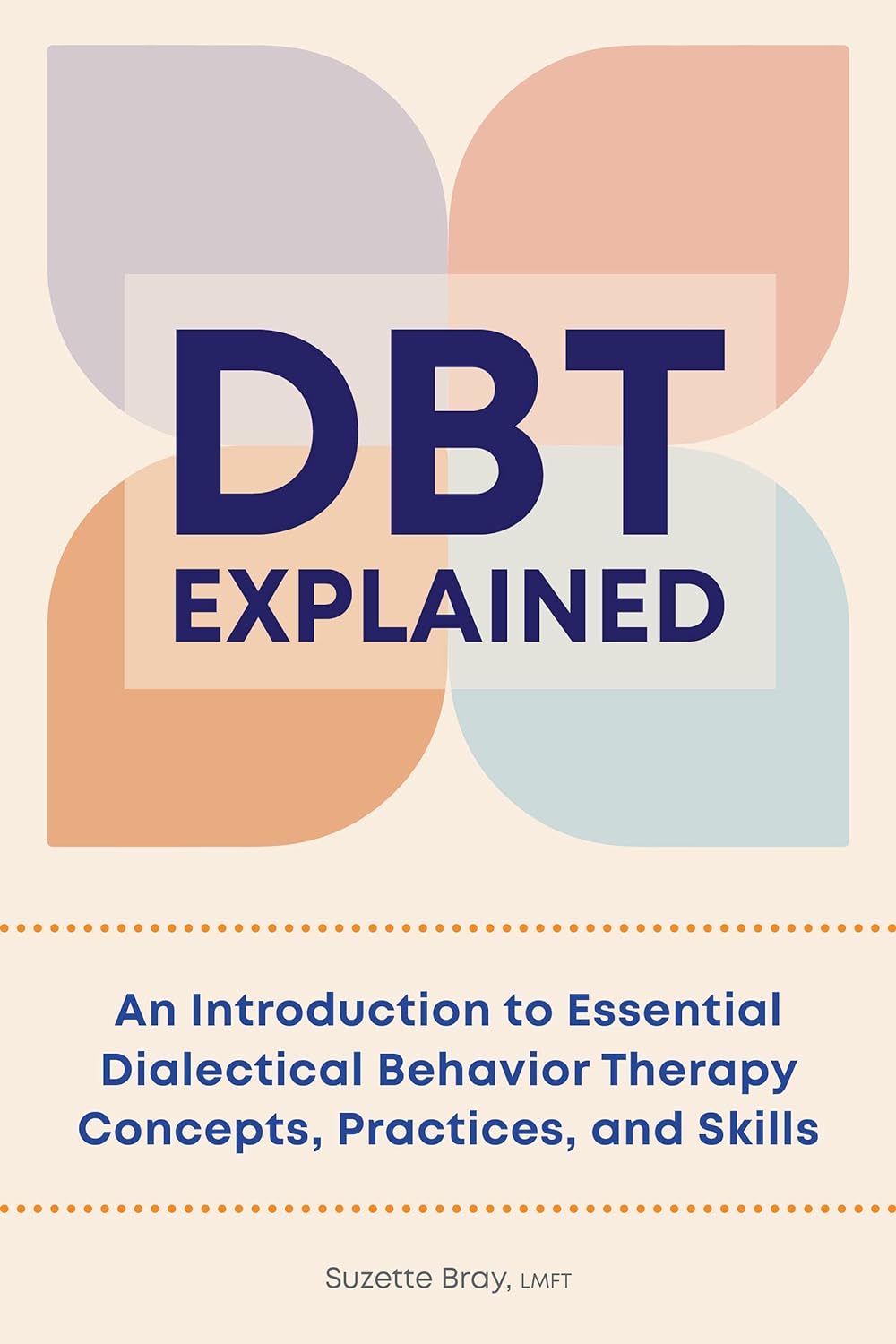Changing Lives: DBT London's Holistic Strategy to Recovery
Changing Lives: DBT London's Holistic Strategy to Recovery
Blog Article
Empowering Individuals With Reliable Dialectical Behaviour Therapy (DBT) Solutions: Structure Stronger Mental Health Foundations
In the world of psychological health and wellness, the value of empowering individuals with reliable Dialectical Practices Therapy (DBT) services can not be overemphasized. By concentrating on the core concepts of DBT, such as enhancing emotional guideline abilities, boosting social performance, developing distress resistance strategies, and cultivating mindfulness techniques, people can embark on a journey towards building stronger mental health and wellness structures. The influence of DBT surpasses plain symptom management; it provides an alternative technique that outfits people with the devices required to browse life's obstacles with strength and self-awareness. As we discover the transformative possibility of DBT in encouraging people to lead even more meeting lives, the course to boosted psychological health and wellness and wellness ends up being a compelling narrative that beckons exploration.
Comprehending the Core Principles of DBT
To understand the significance of Dialectical Behavior Therapy (DBT), it is necessary to comprehend the fundamental principles that underpin this healing technique. DBT combines common cognitive-behavioral techniques with principles of distress tolerance, approval, and mindfulness. The primary goal of DBT is to aid individuals develop a life worth living by balancing modification with approval. This balance is accomplished via the dialectical viewpoint, which stresses the integration of relatively contrary concepts like acceptance and modification.
One core principle of DBT is validation. Therapists utilizing DBT recognize the patient's feelings and habits as valid actions to their setting. This recognition helps build a strong restorative alliance and motivates individuals to function in the direction of adjustment. Another fundamental aspect is dialectics, which instructs individuals to see circumstances from several viewpoints and locate the synthesis in between contradictory ideas or feelings.
Moreover, the idea of dialectical abstinence is central to DBT. This principle urges people to avoid suicidal habits while also accepting themselves. By recognizing and including these core concepts, therapists can efficiently implement DBT strategies and assistance individuals in their journey in the direction of psychological guideline and mental well-being.
Enhancing Psychological Guideline Skills
Developing effectiveness in taking care of feelings is an essential aspect of fostering emotional wellness and interpersonal performance. Enhancing emotional regulation abilities is a core element of Dialectical Behaviour Treatment (DBT) that gears up people with the devices to navigate extreme emotions in a healthy and balanced and useful way. Via DBT, people find out to identify, understand, and manage their emotions, bring about boosted psychological wellness end results.
DBT highlights the value of mindfulness, which entails existing in the moment without judgment. This method allows individuals to observe their feelings without ending up being bewildered by them, improving their capacity to respond properly instead of respond impulsively. By cultivating mindfulness, individuals can create a higher feeling of self-awareness and emotional control.

Improving Interpersonal Efficiency
Having developed a solid structure in emotional regulation abilities within the structure of Dialectical Behavior Therapy (DBT), the focus currently moves towards enhancing social efficiency. Improving interpersonal effectiveness is an essential component of DBT as it outfits people with the required skills to browse social interactions, communicate properly, established boundaries, and construct much healthier relationships.
In DBT, social efficiency skills are educated with modules that concentrate on areas such as assertiveness, reliable interaction, and interpersonal analytic - DBT London. By discovering these abilities, individuals can enhance their capability to express their demands and wishes, maintain pride, and construct stronger links with others


Building Distress Resistance Strategies
Discovering efficient methods for handling emotional distress is essential for people looking for to improve their coping skills and resilience. Structure distress tolerance techniques is a crucial facet of Dialectical Behavior Therapy (DBT) that empowers people to navigate challenging feelings without ending up being overwhelmed. One basic method in DBT for distress tolerance is the phrase "ACCEPTS," which represents Tasks, Contributing, Contrasts, Emotions, Pressing away, Thoughts, and Sensations. By making use of these techniques, individuals can properly handle distressing scenarios and regulate their psychological reactions.
In addition, mindfulness methods play a substantial role in structure distress resistance. Mindfulness encourages people to remain present in the moment without judgment, permitting them to observe their thoughts and emotions without responding impulsively. This recognition allows people to endure distress better and create a greater sense of control over their feedbacks.
In addition to these methods, producing a tailored distress tolerance plan with the support of a trained therapist can offer people with a customized strategy to managing emotional distress. By integrating these methods right into life, individuals can enhance their psychological health and wellness foundations and enhance their overall wellness.
Cultivating Mindfulness Practices
To deepen their distress tolerance methods additionally, individuals can concentrate on cultivating mindfulness methods as a corresponding strategy within the structure of Dialectical Practices Treatment (DBT) Mindfulness, a vital part of DBT, entails taking notice of the here and now minute without judgment. DBT London. By cultivating mindfulness, people can boost their recognition of ideas, feelings, and physical feelings, promoting a deeper understanding of themselves and their experiences
Mindfulness practices in DBT include strategies such as conscious breathing, body go to the website scans, and observing Find Out More ideas without accessory. These methods encourage individuals to create a non-reactive position in the direction of their inner experiences, allowing them to react to tough circumstances with higher clarity and composure. By including mindfulness right into everyday routines, people can discover to regulate their feelings extra successfully, minimize impulsive actions, and grow a sense of internal peace.
Through growing mindfulness methods, individuals undertaking DBT can develop a strong structure for handling stress, boosting connections, and enhancing total well-being. By incorporating mindfulness into their healing journey, people can establish valuable abilities that empower them to browse life's challenges with strength and self-awareness.
Final Thought
To conclude, efficient Dialectical Practices Therapy (DBT) solutions play a vital role in equipping people to develop more powerful mental wellness foundations. By comprehending the core concepts of DBT, enhancing psychological regulation skills, boosting interpersonal efficiency, constructing distress tolerance strategies, and growing mindfulness methods, people are equipped with the required devices to browse their emotions, connections, and obstacles in an extra adaptive and durable manner. DBT services use a comprehensive technique to advertising psychological well-being and empowering people to lead meeting lives.
By focusing on the core principles of DBT, such as improving psychological law abilities, improving interpersonal efficiency, developing distress resistance techniques, and growing mindfulness practices, individuals can embark on a journey towards building more powerful psychological wellness structures. Enhancing psychological law abilities is a core component of Dialectical Behaviour Therapy (DBT) that equips individuals go to website with the tools to navigate intense emotions in a constructive and healthy manner.Additionally, DBT instructs useful skills such as distress tolerance and emotion regulation techniques to help people take care of tough feelings.To strengthen their distress tolerance methods even more, individuals can concentrate on cultivating mindfulness practices as a complementary approach within the structure of Dialectical Practices Treatment (DBT) By comprehending the core principles of DBT, enhancing psychological law abilities, enhancing interpersonal effectiveness, constructing distress resistance methods, and cultivating mindfulness techniques, people are furnished with the required devices to browse their emotions, relationships, and obstacles in a much more resistant and adaptive manner.
Report this page